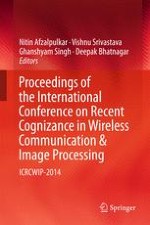2016 | OriginalPaper | Buchkapitel
A Comparative Analysis of Different LFSR-Based Ciphers and Parallel Computing Platforms for Development of Generic Cipher Compatible on both Hardware and Software Platforms
verfasst von : Trishla Shah, Darshana Upadhyay, Priyanka Sharma
Erschienen in: Proceedings of the International Conference on Recent Cognizance in Wireless Communication & Image Processing
Verlag: Springer India
Aktivieren Sie unsere intelligente Suche, um passende Fachinhalte oder Patente zu finden.
Wählen Sie Textabschnitte aus um mit Künstlicher Intelligenz passenden Patente zu finden. powered by
Markieren Sie Textabschnitte, um KI-gestützt weitere passende Inhalte zu finden. powered by
